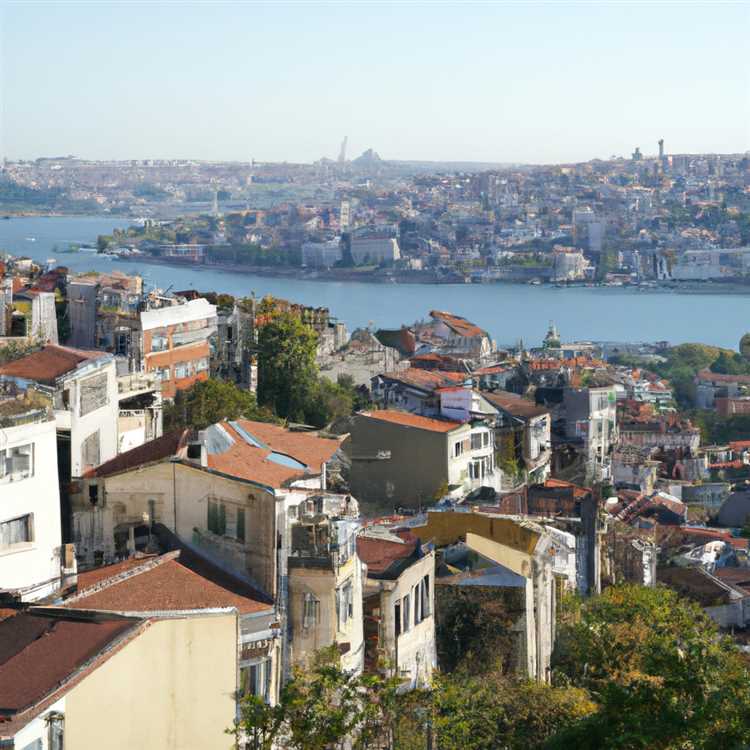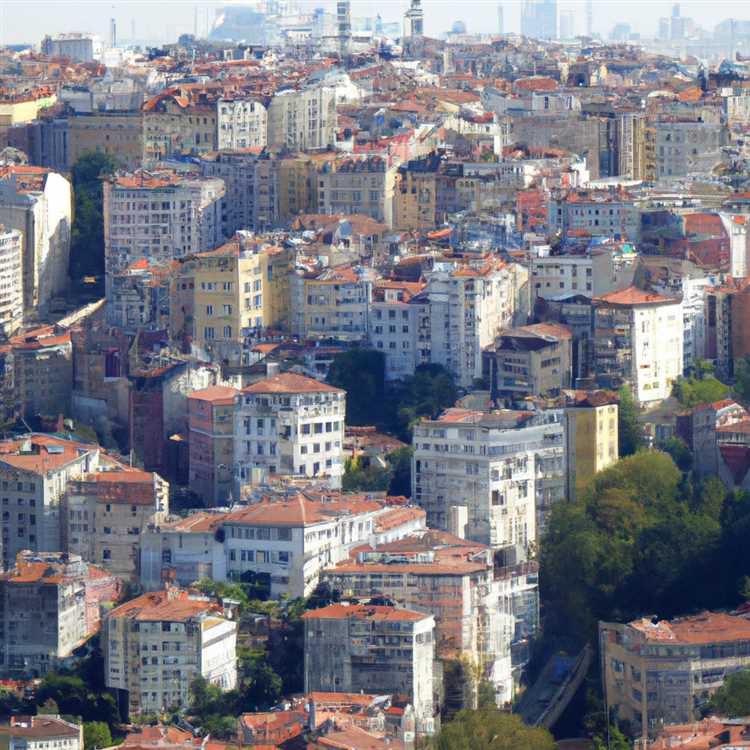Navigating the complexities of real estate in the bustling metropolis by the Bosphorus can be both exhilarating and daunting. Prospective buyers often find themselves enchanted by the city’s vibrant culture, rich history, and stunning architecture. However, it’s crucial to proceed with caution.
Understanding the market dynamicsand specific nuances of neighborhoods can make all the difference. Are you drawn to the historic charm of Sultanahmet, or perhaps the modern allure of Beşiktaş? Each area presents unique advantages and potential challenges that might influence your decision.
Let’s delve into a range of critical factors. We’ll cover everything from financial considerations to legal aspects. The aim is to equip you with the information you need. This way, you can make an informed decision.
First, take into account the economic fluctuations that may impact property values. Foreign investment regulations are another vital aspect. It’s important to be aware of any restrictions that may apply.
Next, consider the local amenities and infrastructure. These elements can significantly affect your living experience. Access to public transportation, proximity to schools and hospitals, and even the availability of green spaces should be evaluated. Each of these can dramatically impact your decision to settle in this historic, yet ever-evolving city.
Essential Considerations for Istanbul Real Estate
Finding the perfect property in Istanbul can be a complex process. The city offers a wide variety of neighborhoods, each with its own unique character and charm. It’s crucial to recognize various aspects to ensure your investment is worthwhile. Understanding the essentials can make your experience smoother and more rewarding.
- Location:Proximity to public transportation, schools, and amenities is vital. Istanbul’s traffic can be challenging, so easy access can save time and stress.
- Neighborhood:Each district has its own vibe. Some are bustling and energetic, while others are peaceful and family-oriented. Research and visit different areas to find the best fit.
- Property Condition:Look at both the interior and exterior. A thorough inspection can reveal potential issues. Don’t hesitate to hire a professional for this task.
- Legal Considerations:Ensure that the property has clear ownership. Verify zoning laws and building regulations to avoid future complications.
- Financial Aspects:Understand the market trends and property values. Consider additional costs like taxes, maintenance, and potential renovations.
One must also consider the future development plans of the area. Rapid urbanization might affect the neighborhood environment. Additionally, checking the social and cultural atmosphere can provide insights into the community lifestyle. These factors collectively contribute to making a wise and informed decision.
Evaluating Neighborhoods and Amenities
Choosing the right neighborhood can make all the difference. Investigate the surrounding area thoroughly. Consider what each location has to offer. Research the infrastructure and local facilities available. Check proximity to public transport and main roads. Explore the environment both during the day and at night. This way, you’ll get a full sense of the area’s safety and lifestyle options available to you.
Public Services and Accessibility
Begin by checking the availability of public services. Are there hospitals nearby? How about schools and universities? Proximity to these facilities can significantly improve your quality of life. Also, consider how accessible supermarkets, malls, and parks are. A neighborhood with well-maintained amenities can enhance daily comfort. Take note of public transport options and their reliability.
Community and Lifestyle
Understanding the community is crucial. Is the area family-friendly, or does it cater more to young professionals? Different districts may have distinct vibes. Get a feel for the community events and social activities. This can indicate how vibrant or quiet the area might be. Speak to locals if possible. Their insights can reveal nuances you won’t find in brochures.
Safety and Security
Never underestimate the value of a secure environment. Check local crime rates and statistics. Sometimes, even beautiful areas might have underlying safety issues. Look for signs of law enforcement presence. Security is not just about crime but also about peace of mind. Do you feel comfortable walking around at night? Trust your instincts when assessing the safety of a neighborhood.
Future Development and Investment Potential
Lastly, think long-term. Investigate future development plans. Planned public projects or commercial developments can impact property values. Both positively and negatively. Consult urban planning maps if available. They often provide valuable foresight into future transformations. Remember, a neighborhood that seems less appealing today might become a hotspot tomorrow. Always consider the investment potential before making your final decision.
Finding the Right District

Choosing the perfect district in Istanbul can greatly influence your overall experience. Every area offers its own unique charm, amenities, and lifestyle. Some are historical, while others are modern and bustling. It’s important to identify which features matter most to you.
The first step is considering your priorities. Do you prefer a quiet and serene neighborhood or a lively and vibrant atmosphere? Here are some factors to keep in mind:
- Proximity to public transport: Ease of commute is crucial, especially in a city as vast as Istanbul. Make sure the area has good access to buses, metro, or ferries.
- Amenities: Think about grocery stores, schools, hospitals, and parks. Living close to essential services can make daily life much more convenient.
- Safety: Research the crime rates and general safety of the neighborhood. You want to feel secure in your new environment.
- Community: Some districts have a strong sense of community and cultural activities. If social engagement is important, choose a district known for its friendly atmosphere.
Another crucial aspect is your budget. Districts in Istanbul vary significantly in terms of cost. While some regions offer affordable options, others are more upscale with higher price tags. Consider your financial boundaries before making a decision.
Lastly, think about future growth. Certain neighborhoods are developing rapidly and can be promising areas. Investing in such districts might yield significant benefits down the line. It’s not just about the present; consider the potential for appreciation.
Access to Public Transport

Choosing a residence in a bustling city comes with many considerations. Among them, proximity to public transport is paramount. Accessibility can significantly impact your daily life.
Efficient public transport can offer several benefits. It can save time, reduce stress, and even be eco-friendly.
When exploring different neighborhoods, here are a few key points to consider:
- Proximity to metro or tram stations. These can provide quick, reliable travel across the city.
- Availability of bus routes. Buses can reach areas not covered by metro or tram.
- Connectivity to major hubs. Easy access to transportation hubs can make longer commutes smoother.
- Frequency of services. More frequent services mean less waiting and more convenience.
- Condition and upkeep of transport facilities. Clean, safe stations can enhance your overall experience.
It’s also helpful to test the commute during different times of day. Morning rush or late-night trips can vary greatly. Plan a few outings to get a true sense of travel patterns.
Check the neighborhood’s walkability. The best areas often combine great public transport with pleasant walking paths. This mix ensures you have multiple routes and options at all times.
- Research the local infrastructure projects. Planned expansions can increase future connectivity.
- Explore local community forums. Residents often share insights on commuting and public transport.
- Consider the availability of bike-sharing programs. These can complement public transport options.
Public transport’s efficiency can make or break your daily routine. Therefore, diligence in this aspect can enhance your overall quality of life significantly. Prioritize this aspect to ensure seamless urban living.
Proximity to Schools and Parks

Choosing a place to live often revolves around essential amenities close by. Schools and parks can significantly influence this decision. Parents naturally prioritize educational institutions for their children’s future. Play areas, on the other hand, offer relaxation and recreation. That’s why it’s vital to assess these aspects.
Schools within walking distance provide convenience. It ensures more time at home, less stress. Furthermore, good schools often increase neighborhood value. It’s not just convenience but also an investment in your child’s learning journey.
Parks are equally essential. They offer green spaces for relaxation and activities. Whether you have kids or pets, parks are invaluable. They promote a healthy lifestyle with outdoor exercise opportunities. Social gatherings become easier with open lawns and playgrounds.
The synergy of good schools and accessible parks contributes immensely to a well-rounded lifestyle. They don’t just add value to the property, but also enhance daily living. Make sure the locality you choose balances both. It’s a step towards a harmonious and fulfilling life!
Understanding Legal and Financial Aspects
Grasping the intricacies of legal and financial matters is vital. This knowledge ensures a smooth transaction and safeguards your investment. You can’t afford to overlook essential details. From contracts to tax obligations, every aspect matters. It’s crucial to be meticulous.
First, address the legal requirements. Titles and deeds must be authentic. Verify all documents through a certified lawyer. Failure to do so can lead to complications. The Turkish government has specific mandates. Ignoring them is risky.
Financial considerations are equally important. Understand the payment structure. Down payments, installment plans, and bank loans vary. Each option has its pros and cons. Weigh them carefully. It’s essential to budget wisely.
Clearing outstanding debts is often overlooked. Ensure the property is debt-free. Unpaid dues can transfer to the new owner. Always ask for clearance documentation. This step saves future headaches.
| Aspect | Details |
|---|---|
| Legal Checks | Authenticity of titles, proper registration, compliance with Turkish laws |
| Financial Reviews | Payment structures, bank loan options, budgeting correctly |
| Outstanding Debts | Ensure no existing unpaid dues, get clearance documentation |
Securing Financing Options
Understanding various funding avenues is crucial. You need clarity about your budget. This step can ease your journey considerably. Explore different financial institutions. Analyze interest rates and repayment terms. Always check for hidden fees. It’s essential to be well-informed about all potential expenses involved, shaping a comprehensive picture of what you can afford and how much you may need to borrow.
Consult with Local Banks
Not all banks offer the same deals. Visit local branches. Ask about specific mortgage products tailored for purchasing properties. Compare quotes. Some banks might have special offers. In some cases, there are discounts for first-time buyers. Taking the time to speak with multiple banks can reveal significant differences in the options available, helping you find the most favorable terms and conditions to suit your financial situation.
Consider International Lenders
If you are an expatriate, international lenders can be a good option. They understand unique needs. They offer tailored solutions. It’s worth exploring their terms. Sometimes, they have better deals. You might need a higher deposit. It’s essential to balance between interest rates and the stability of the mortgage offered, ensuring that you not only secure financing but do so in a way that’s sustainable over the long term.
Evaluate Your Credit Score
Your credit score plays a vital role. It affects interest rates. Check your score beforehand. Improve your score if necessary. Small improvements can make a big difference. Pay off existing debts. Reduce your credit card balances. Every point counted can translate into lower monthly payments, easing your financial burden.
Utilize Government Programs
Governments sometimes offer assistance programs. Investigate these opportunities. They might provide grants. Interest rates can be subsidized. Programs can vary. Some are tailored for specific groups. Research thoroughly. Knowing all your options ensures you don’t miss out on potentially beneficial schemes, saving you money and making the purchase more affordable.
Seek Professional Financial Advice
Consulting a financial advisor helps. They have expertise. They can guide you through complex scenarios. They save you time. They ensure you don’t overlook details. Professionals can craft a personalized strategy. Their insights can reveal potential pitfalls or highlight advantageous opportunities otherwise missed, giving you confidence in your financial decisions.
Reviewing Property Legal Status
Understanding the legal standing of a property is crucial. It’s the foundation of a secure investment. Not all properties in Istanbul are legally compliant. Some might have pending legal issues. Uncover these early to avoid future complications.
Your first step should be verifying property ownership. Ensure the seller is the legitimate owner. This can be checked at the Land Registry Office. Next, scrutinize the property’s title deed. Is it free from encumbrances or debts?
Consider hiring a legal expert. They can navigate the intricate Turkish real estate laws. Their insight is invaluable. They’ll know what to investigate and how to protect your interests. Here’s a list of critical things to verify:
- Ownership: Confirm current ownership and the property’s history.
- Title Deed: Validate its accuracy and freedom from obligations.
- Zoning Compliance: Ensure the property adheres to local zoning laws.
- Building Permits: Check if all necessary construction permits are in place.
- Legal Disputes: Investigate any ongoing or past legal disputes involving the property.
Additionally, be aware of municipal regulations. Each area in Istanbul may have unique requirements. Compliance is non-negotiable. Breaches can lead to hefty fines or the necessity to alter your property later on. Staying informed will save you from such hassles.
Finally, don’t forget about taxes. Unpaid property taxes can be transferred to the new owner. Ensure they are settled. Verify tax status through official records. This is not just a formality; it’s a vital check to safeguard your investment.
In conclusion, due diligence is essential. It protects you from legal pitfalls. It ensures your property is a sound investment. Taking these steps seriously will enable you to navigate Istanbul’s real estate market with confidence.
Calculating Hidden Costs
Unforeseen expenses are often overlooked when acquiring property. One must dig deeper into their budget. Superficial calculations might lead to unpleasant surprises. Don’t just tally up the price and taxes. There are more layers involved. First impressions can be deceiving.
Legal fees come into play. Hiring a lawyer is crucial. You’ve got to account for notary charges too. These costs can vary significantly. It’s not something you can afford to ignore. Keep in mind, this is not a minor expense.
Maintenance and renovation costs may arise. Older properties might seem charming but can require more upkeep. Hidden damage could surface. Newer constructions might need finishing touches. It’s essential to assess the condition beforehand. Don’t let the initial beauty blind you.
There’s also the issue of monthly fees. Many properties have shared amenities. Pools, gyms, or gardens aren’t maintained for free. Monthly management fees can pile up. These are sometimes buried in the contract fine print. Calculate these to avoid a budget crisis later.
Currency exchange is another subtle factor. If you’re not local, you need to consider exchange rates. Fluctuations can affect your overall spending. Monitor changes in currency value. Ignoring this can lead to an underestimation of total costs.
Insurance is essential too. Property insurance protects against various risks. Natural disasters, theft, and damage are potential threats. The cost of premiums should be factored in. Check different providers and get estimates. Ensure the policy covers all necessary aspects.
Utility connections aren’t free. Connecting water, electricity, and gas can run up your bill. Sometimes these are already installed. Other times, you need to handle it. Make sure to investigate before finalizing anything.
Finally, consider the cost of furnishing. An empty property isn’t liveable. Furniture, appliances, and decorations add to the bill. Make a list of essentials. Factor in the prices. Your cozy new space might cost more than anticipated.
Video:
Look Inside My Istanbul Home Renovation
Look Inside My Istanbul Home Renovation by Nomad Capitalist 79,356 views 1 year ago 13 minutes, 51 seconds
Questions and answers:
What are the key factors to consider when buying a home in Istanbul?
When buying a home in Istanbul, consider the following key factors: location, which neighborhoods you’ll prefer; the amenities and facilities available in the area; the quality and age of the property; the legal aspects, including necessary permits and property rights; and your budget, factoring in additional costs like taxes, fees, and maintenance. Proximity to transportation and future development plans in the area can also significantly impact your decision.
How do I find a reliable real estate agent in Istanbul?
To find a reliable real estate agent in Istanbul, start by seeking recommendations from friends or colleagues who have had positive experiences. You can also check online reviews and ratings on platforms dedicated to real estate or expats living in Turkey. Ensure the agent is licensed and ask them about their experience, especially with the types of properties and areas you are interested in. Meeting several agents before making a choice can help you find someone who understands your needs and with whom you feel comfortable working.
Are there any specific legal requirements for foreign buyers in Istanbul?
Yes, there are specific legal requirements for foreign buyers in Istanbul. Foreigners need to ensure that the property is not located in a military zone, as these areas are restricted. You must obtain a tax number and open a Turkish bank account. Additionally, it’s advisable to engage a lawyer who specializes in Turkish real estate law to help navigate through the process, including the verification of title deeds and other essential documentation. The process involves signing a sales agreement, making the required payments, and finally registering the property at the land registry.
What neighborhoods in Istanbul are popular among expatriates?
Several neighborhoods in Istanbul are popular among expatriates due to their amenities, international communities, and quality of life. Areas like Nişantaşı, Bebek, and Etiler are well-known for their upscale environment and luxury properties. Kadıköy and Moda on the Asian side offer a more relaxed, yet vibrant atmosphere with plenty of restaurants, cafes, and cultural activities. Cihangir and Galata in the Beyoğlu district are favored for their bohemian vibe, proximity to tourist attractions, and lively nightlife. Each neighborhood has its unique charm, catering to different lifestyles and preferences.
How can I finance the purchase of a property in Istanbul?
Financing the purchase of a property in Istanbul can be done through several options. Many buyers opt for mortgages from Turkish banks, which offer various loan products to foreign buyers, though the terms and conditions may vary. It’s important to compare interest rates and loan terms from different banks to find the best option for your needs. Some individuals may choose to leverage personal savings or secure financing from a bank in their home country. Additionally, negotiating payment plans directly with developers can sometimes offer more flexibility, especially for new projects. Consulting with a financial advisor or mortgage broker can provide tailored advice based on your financial situation and goals.
What are the most important factors to consider when buying a home in Istanbul?
When buying a home in Istanbul, there are several key factors to consider. First, location is crucial. Some areas in Istanbul are better connected, offer more amenities, and tend to appreciate in value more quickly than others. For example, neighborhoods like Beşiktaş, Şişli, and Kadıköy are highly sought after. Second, the quality of construction is essential, especially due to the city’s seismic activity. It’s important to ensure the building adheres to the latest earthquake-resistant standards. Third, consider the legal aspects such as title deed clarity and possible zoning restrictions. Working with a reputable real estate agent can help navigate these issues. Additionally, proximity to public transportation, local amenities, and future infrastructure projects can significantly impact both your lifestyle and the property’s value.
How do recent infrastructure projects in Istanbul influence the real estate market?
Recent infrastructure projects in Istanbul have significantly influenced the real estate market, driving up property prices and increasing demand in certain areas. Projects such as the new Istanbul Airport, the Marmaray rail link, and ongoing metro expansions have made previously less accessible areas more appealing. This is particularly noticeable in districts near new metro lines, where ease of commuting enhances the livability and value of properties. Additionally, these projects often bring with them improved local amenities, such as new schools, parks, and shopping centers, further boosting the attractiveness of these neighborhoods. It’s also worth noting that government-backed initiatives to improve infrastructure can create a sense of long-term stability and growth, making these areas appealing for both investors and homebuyers looking for capital appreciation over time.



